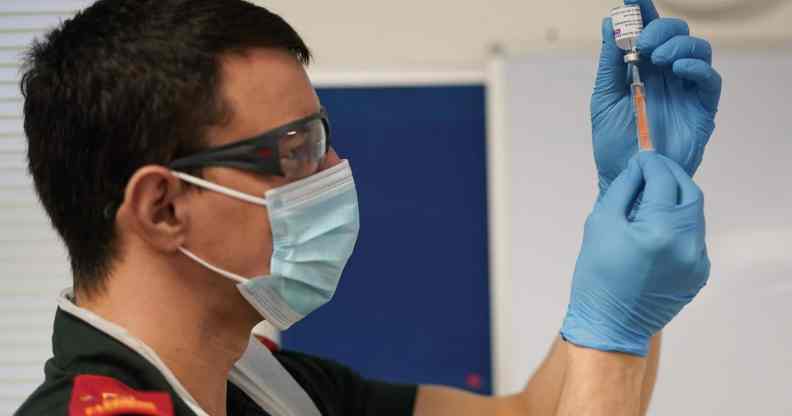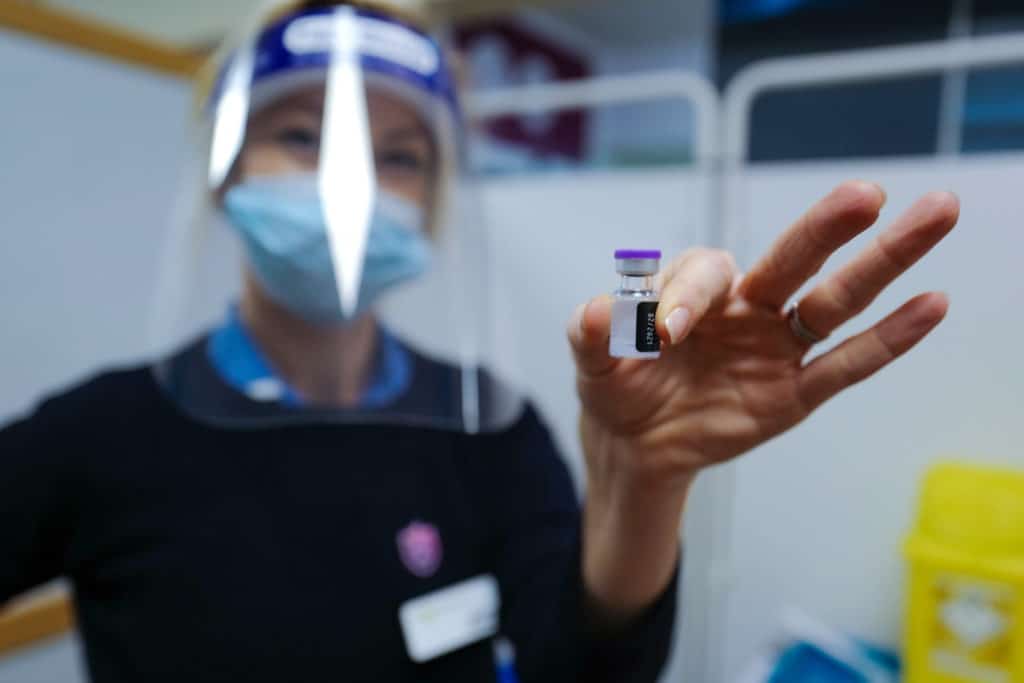People with HIV can now receive life-saving COVID vaccine without disclosing their status to a GP

NHS England updated policy around how HIV-positive people can receive the COVID vaccine. (Ian Forsyth/Getty Images)
People living with HIV in England will no longer have to disclose their status to their general practitioner (GP) to receive the COVID-19 vaccine.
Those living with HIV are automatically classed as at-risk for COVID-19 by government health authorities, meaning they will be eligible for the vaccine ahead of under-60s as part of the roll-out, and will be offered their first dose by mid-April at the latest.
But advocates quickly raised alarms over the requirement of those at risk needing to be referred by their GPs to receive their jab.
Fearing that the still-pervasive stigma over HIV could lead to people missing out on the life-saving vaccine – up to a quarter of people living with HIV may not have told their GP about their status, according to the NHS.
The solution, campaigners said, was simple: Give specialist HIV clinics access to refer people for COVID-19 vaccines.
Hearing their pleas, NHS England will now allow the clinics, which are in charge of managing care for people living with HIV, to refer patients, according to the i newspaper.
The new policy allows patients to receive the vaccine without going through primary care services, the so-called “front door” of the NHS.
Moreover, the updated policy will see those living with the virus contacted in the coming weeks to ask if they are comfortable with disclosing their status to their GP.
If a patient would prefer not to, they will be given the option to receive the vaccine through the hospital where their HIV clinic is based.
NHS Wales placed similar measures last week.
It was a move celebrated by sexual health activists as well as LGBT+ healthcare providers, describing it as “the right decision from the NHS”.
Relieved, sexual health bosses welcome HIV COVID vaccine news
NHS England national advisor for LGBT+ health, Dr Michael Brady, sought to urge people living with HIV to still alert their GP to their status.
“I encourage everyone living with HIV to register with a GP and make them aware of their HIV diagnosis so they get the best possible health care and access to the life-saving COVID vaccine,” Brady said.
“For those not comfortable doing this, local HIV clinics will now be able to arrange a vaccine through an alternative route, such as a local hospital hub.”

A nurse in a UK hospital prepares to administer COVID-19 vaccinations. (Getty/Hugh Hastings)
For HIV activists, a sense of relief. Bosses of some of the nation’s top sexual health charities and organisations welcomed the news – but the fight, they stressed, is in no way over.
“This is great news and the right decision from the NHS as it means people living with HIV will be able to take up the potentially life-saving COVID-19 vaccine at their earliest opportunity,” said Terrence Higgins Trust chief executive Ian Green, “even if they feel unable to share their HIV status with their doctor.”
Darren Knight, chief executive of George House Trust, an HIV service-provider in northwest England, echoed this.
“Through providing COVID vaccinations via HIV clinics, it means that no one living with HIV will miss out on the opportunity to play their part in the battle against COVID and stay well,” Knight said.
“We’ve still got work to do to build confidence in people sharing their HIV status, providing vaccinations via HIV clinics is the best thing we can do right now and this is such welcome and positive news.”

